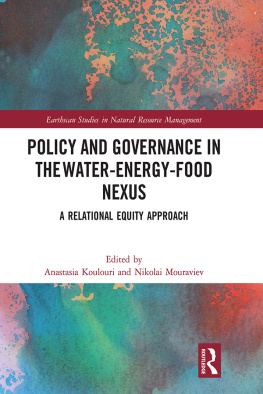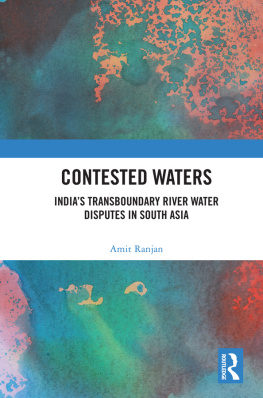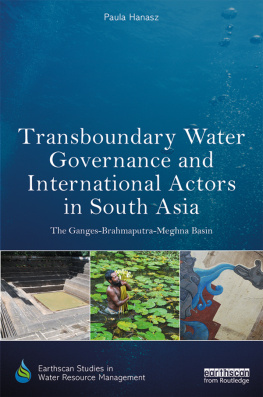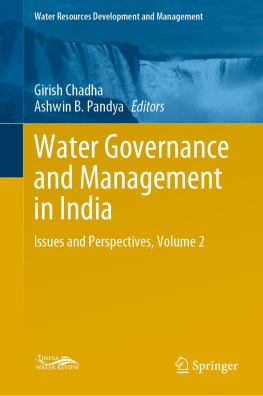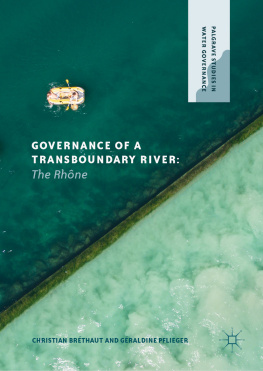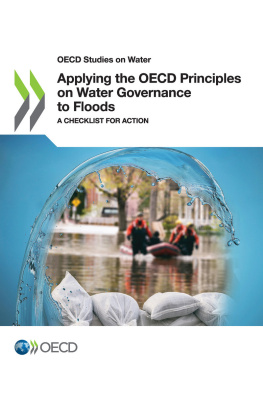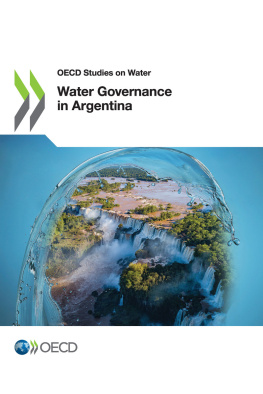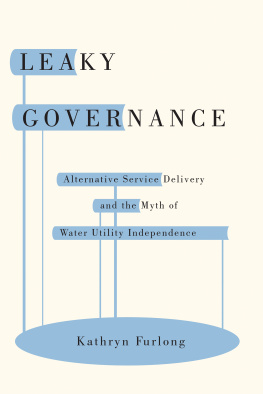M. Anwar Hossen - Water Policy and Governance in South Asia: Empowering Rural Communities
Here you can read online M. Anwar Hossen - Water Policy and Governance in South Asia: Empowering Rural Communities full text of the book (entire story) in english for free. Download pdf and epub, get meaning, cover and reviews about this ebook. year: 2017, publisher: Taylor & Francis, genre: Politics. Description of the work, (preface) as well as reviews are available. Best literature library LitArk.com created for fans of good reading and offers a wide selection of genres:
Romance novel
Science fiction
Adventure
Detective
Science
History
Home and family
Prose
Art
Politics
Computer
Non-fiction
Religion
Business
Children
Humor
Choose a favorite category and find really read worthwhile books. Enjoy immersion in the world of imagination, feel the emotions of the characters or learn something new for yourself, make an fascinating discovery.

- Book:Water Policy and Governance in South Asia: Empowering Rural Communities
- Author:
- Publisher:Taylor & Francis
- Genre:
- Year:2017
- Rating:5 / 5
- Favourites:Add to favourites
- Your mark:
Water Policy and Governance in South Asia: Empowering Rural Communities: summary, description and annotation
We offer to read an annotation, description, summary or preface (depends on what the author of the book "Water Policy and Governance in South Asia: Empowering Rural Communities" wrote himself). If you haven't found the necessary information about the book — write in the comments, we will try to find it.
Dr. Hossen carried out an exceptional program of research in Bangladesh which focused on water governance in relation to human rights, international water law and environmental sustainability. His major argument is that eco-agricultural system encounters major disruptions due to a number of factors including regional hydropolitics and neoliberal and highly centralized approaches to water resource management that follow the principles of ecocracy. In this context, Dr. Hossen explores three major questions: (i) How can local ecological knowledge be incorporated into national water policy? (ii) What strategies and reforms are required at the international watershed governance level? and (iii) How can human rights principles, including the principle of water as a human right, be used to formulate more effective water policy and governance principles?
To answer these questions, Dr. Hossen explores the effects of regional hydropolitics on water management, focusing on three large engineering projects, the Farakka Barrage built by India on the Ganges River, and the Ganges-Kobodak (GK) and Gorai River Restoration (GRR) Projects in Bangladesh. This analysis is based on his research into local knowledge and farming practices during a year of fieldwork in 2011-12, focus group discussions, in-depth case studies and social survey methods. In addition to this primary data, he looks at extensive secondary documents from the government of Bangladesh pertaining to water management, agricultural modernization and institutional structures. The arguments herein are applicable particularly to the Ganges-Brahmaputra Basin countries in South Asia but also to the river basins of other parts of the world.
M. Anwar Hossen: author's other books
Who wrote Water Policy and Governance in South Asia: Empowering Rural Communities? Find out the surname, the name of the author of the book and a list of all author's works by series.

